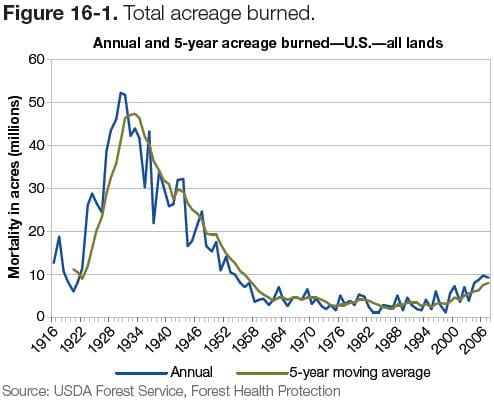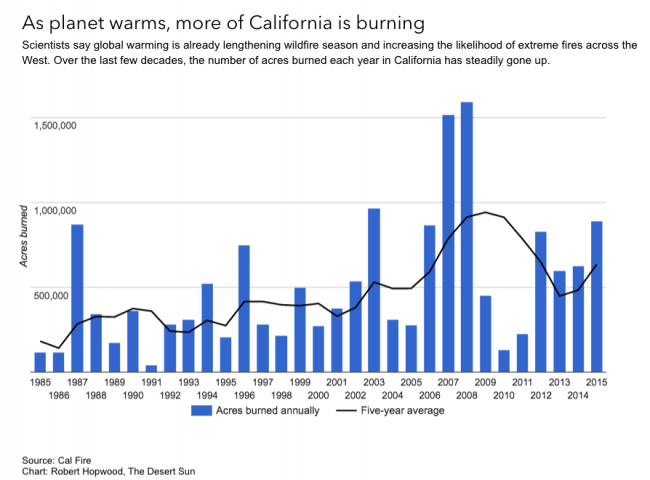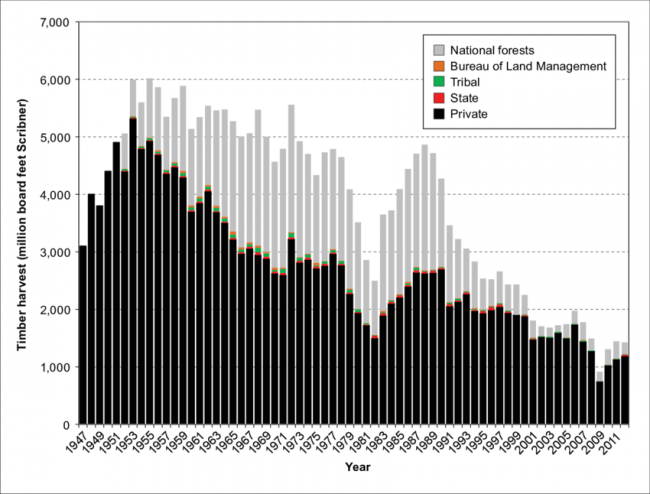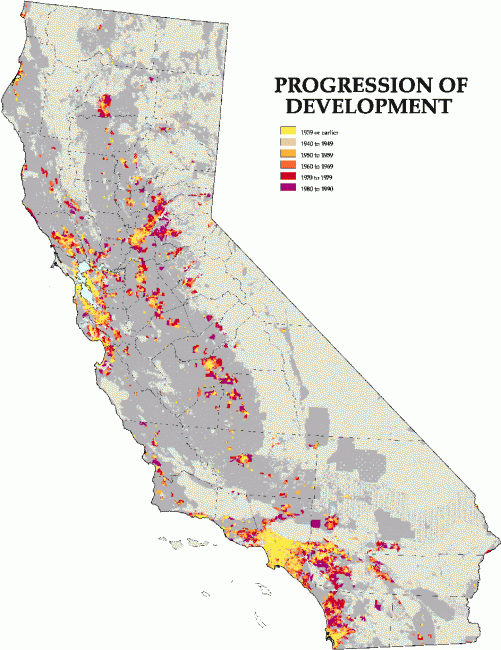Looking At Causes of Recent Wildfires and Resultant Property Damage, It's Hard To Point The Finger Solely or Even Mostly at CO2
Today I want to talk a bit about trends in wildfires in the US. And as regular readers know, I have a real pet peeve about declaring a trend without actual, you know, trend data. The media may be willing to jump from "most devastating fire in California history" to a trend just based on this one data point, but I am not going to play.
It turns out, though, that we don't have to play the one data point extrapolation game because there actually does seem to be a trend in wildfire. Here is the national chart:
You might be saying: Hey Coyote, you are cherry picking -- I have seen this same data but with a huge hump in the early part of the century. Here is the chart you saw:
(source for both) The problem with this chart is a huge definitional change in the data between the first and second half of the century. In short, the early half of the century included controlled burns and other purposeful manmade actions (mostly in the southeast) and the latter half does not. I described this here -- skeptics who use this chart are in serious danger of committing the same sloppy data errors we accuse warmists of (confession: I made this mistake for a number of years).
To complete our proof there is indeed a trend in wildfire and not just in wildfire news stories, here is the chart for California, though I cannot vet the source. I will say its not a slam dunk trend but I will take it on faith, at least for now, that the recent years would be high and make the trend more obvious
OK, so there seems to be a wildfire trend in the West. I will focus on California because that has been the area in the news. Let's consider 4 possible causes:
- Temperature. The state of California has seen a 0.02C per decade, or 0.2C per century increase in temperatures. This is a very tiny increase and well below the increase thought to have occurred in other parts of the world. The rise has been faster over the last 10 years or so but it is unclear if this is a long-term trend or a near-term weather effect (e.g. tied to the PDO)

- Precipitation. Total precipitation has decreased by ever so slightly over the last 100 years. A half inch per century is about a 2% reduction

- Forest management. The amount of wood harvested, and thus fuel removed, from forests has dropped by 80% since the 1950s

- Urbanization. This does not necessarily increase fire acreage but it does substantially increase the probability a given fire will impinge on man-made structures. Also, given the enormous almost exponential increase in total CA real estate value, the likely cost of fires of the same size and intensity has risen dramatically. Much of the developed area affected by fires the last several years have been in the red and purple parts of the map that were developed most recently. Fifty years ago they would have just burned trees (source). More CA urbanization trends here.

So, what is causing the large fires? Well, probably a lot of things. I am a big believer that changes in outputs from complex systems can have complex causes (which is why I think the whole meme that "CO2 is the Earth's thermostat" is an embarrassing joke). But given that over the last 50 years temperatures have risen by a fraction of a degree, precipitation has dropped by a fraction of an inch, but fuel removal has dropped by 80% and urbanization has skyrocketed, it is really hard for me to pin all or even most of the blame on manmade CO2.
Postscript: One other point -- California is less than 0.1% of the total land area of the Earth. I have a hard time extrapolating global climate trends from a few big events in 1/1000th of the world.
Postscript #2: I missed this, that hotbed of climate denial called Mother Jones had an article a year ago blaming California fires on forest management policy, specifically preventing lots of little fires leading to one big fire.










